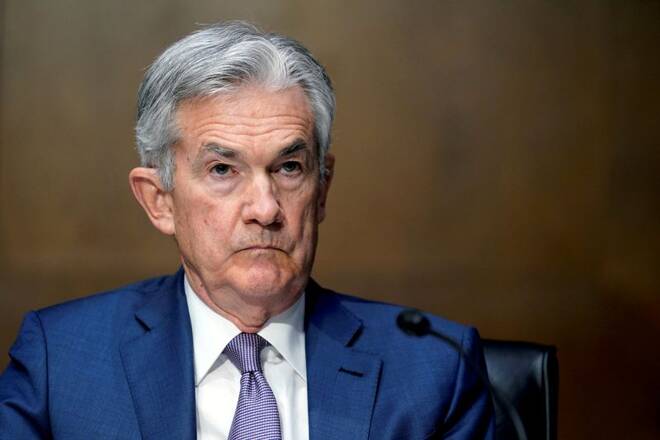Advertisement
Advertisement
U.S. progressives frustrated by White House delay on Fed regulation chief
By:
By Pete Schroeder and Michelle Price WASHINGTON (Reuters) - While Wall Street banks cheered the renomination of U.S. Federal Reserve Jerome Powell on Monday, Democratic progressives were left frustrated at the White House's failure to announce a tough new regulatory chief who they hope will crack down on banks.
By Pete Schroeder and Michelle Price
WASHINGTON (Reuters) -While Wall Street banks cheered the renomination of U.S. Federal Reserve chair Jerome Powell on Monday, Democratic progressives were frustrated that the White House did not announce a tough new regulatory chief to crack down on banks on issues such as climate change and fair lending.
“President Biden’s renomination of Jerome Powell…is a major disappointment to those of us who have fought for tougher regulation of Wall Street as a key tool for protecting financial stability and building a more just and sustainable economy,” progressive group Americans for Financial Reform said in a statement.
The Fed’s current head of supervision Randal Quarles stepped down in October from that powerful role overseeing the country’s largest lenders, and is due to leave the central bank next month. Biden said that and other Fed picks would be announced in early December.
Washington insiders had seen Lael Brainard a fellow Fed governor and Treasury official under former President Barack Obama’s administration, as the leading candidate to replace Quarles due to her vocal stance on the Fed’s regulatory agenda.
But Brainard, who had opposed Quarles’ efforts to ease rules introduced following the 2007-2009 global financial crisis, did not want the supervision post and was looking for a more senior role, according to two people with knowledge of the matter.
Instead, she will step up to become Fed Vice Chair, the White House said.
A Fed spokesman for Brainard did not provide comment.
Progressive groups, eager for the Fed to reverse its Wall Street-friendly stance and accelerate efforts to tackle climate change and overhaul community lending rules, criticized the reappointment of Powell, a Republican appointee who had backed Quarles’ changes, and called for a tough new regulation chief.
“This position must be filled by a strong regulator with a proven track record of tough and effective enforcement – and it needs to be done quickly,” Democratic Senator Elizabeth Warren said in a statement.
Whoever gets the supervision role faces a packed agenda, which will also include reviewing new capital rules and how banks are able to handle cryptocurrencies.
“It’s problematic,” said Todd Phillips, director of financial regulation at the Center for American Progress, a liberal think tank. Following an announcement, it could take until February for the new supervision chief to be confirmed by the Senate, at which point the post would have been empty for around five months, he said.
“It’s going to be a long time until that position is filled.”
Brainard voted against many of Quarles’ changes, arguing they would increase systemic risk. Among the most contentious were revisions to the “Volcker Rule” curbing speculative bank investments; scrapping a requirement for big banks to hold capital against certain swap trades; and easing the Fed’s annual “stress tests.”
Brainard acted as a moderating influence on the Fed’s deregulatory agenda, Reuters has previously reported winning applause from progressive Democrats.
The S&P 500 bank index rose 2.8% on news of Powell’s reappointment, but progressives said they hoped to win a more left-leaning supervision pick. They have voiced frustration that the White House has been slow to fill key regulatory posts, and have said the administration is not moving quickly enough to address climate financial risks.
Other names floated for the role according to Washington insiders include: Sarah Bloom Raskin, a former Fed governor; Atlanta Fed President Raphael Bostic; acting Comptroller of the Currency Michael Hsu; U.S. Treasury under-secretary Nellie Liang; and law professor Mehrsa Baradaran.
Raymond James analyst Ed Mills said the supervision pick will likely have “very progressive views” but that “Powell’s leadership likely softens the impact.”
(Reporting by Michelle Price, Editing by Nick Zieminski and David Gregorio)
About the Author
Reuterscontributor
Reuters, the news and media division of Thomson Reuters, is the world’s largest international multimedia news provider reaching more than one billion people every day. Reuters provides trusted business, financial, national, and international news to professionals via Thomson Reuters desktops, the world's media organizations, and directly to consumers at Reuters.com and via Reuters TV. Learn more about Thomson Reuters products:
Did you find this article useful?
Latest news and analysis
Advertisement
